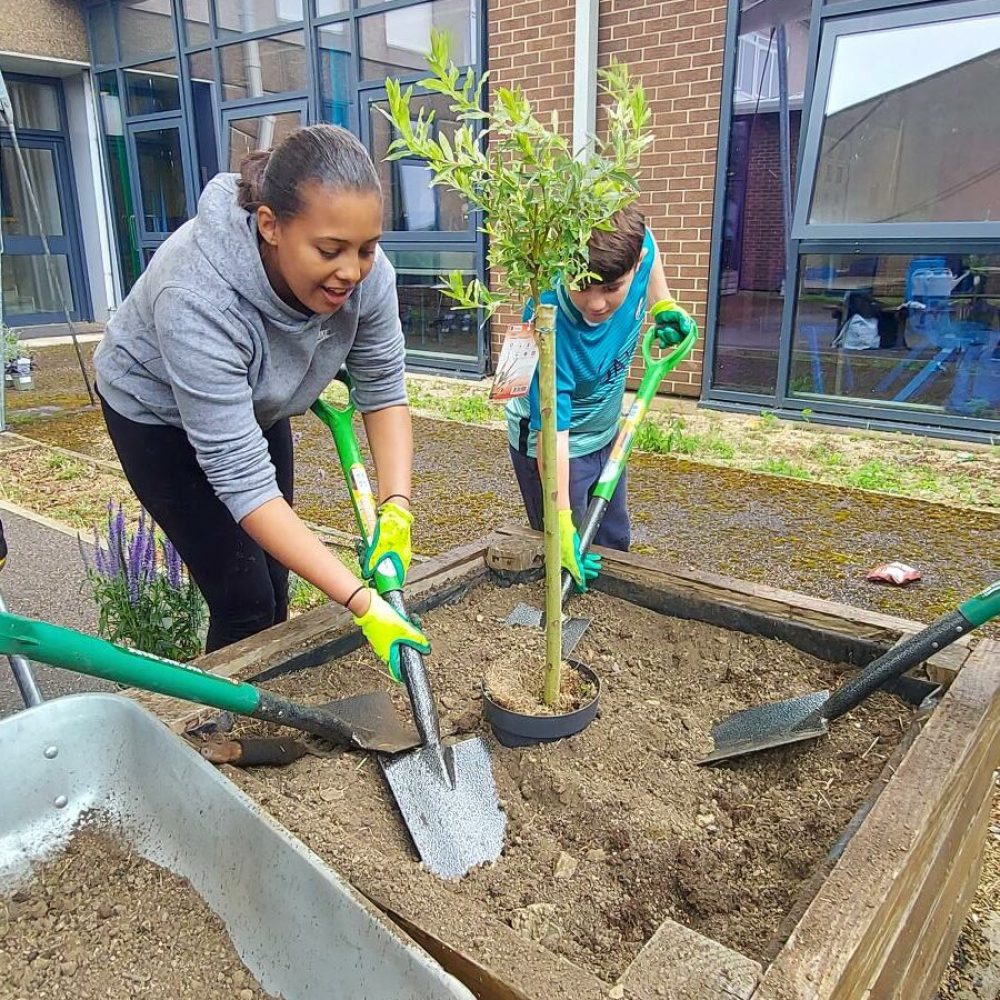OVO Foundation Nature Prize
Schools can win the cash to implement a community nature project. Schools from disadvantaged areas with high pupil premium are particularly encouraged to apply.
Applications open


The Featherstone Academy, a secondary school in West Yorkshire, won a £1,000 OVO Foundation Nature Prize to create a working garden on the school grounds along with pockets of wild areas to increase wildlife and biodiversity.
The initial idea to look for funding came from the school’s principal, who wanted to get the students outside and increase their connection to nature. It was the school’s students, however, who decided on what their project would look like and that their priority would be growing their own fruit and veg.
Alongside growing their own, students also wanted to revamp the front area of the school with pollinator friendly flowers and bug hotels, to increase biodiversity and attract wildlife. This area is open to the public as parking outside of school hours, so the local community will also benefit from increased green space.
For the growing garden, the school has purchased a large polytunnel where they will grow their own produce. Thanks to the funding, as part of the school’s resilience curriculum, where students can choose a non-academic activity, students in KS3 now have the option to choose gardening and will have a timetabled slot for it each week.
Students are approaching the new garden in stages, getting the soil ready for planting and beginning simply by growing herbs. As the garden becomes more established, and students and staff gain skills and confidence, the food they produce will be used in food technology lessons and even served in the school canteen.
Dannie Houston, the marketing and communications manager at the Rodillian Multi Academy Trust, which The Featherstone Academy is part of, bid for the funding and has found the local community to be incredibly supportive of the school’s efforts. The project has grown outwards from the prize; going out and spending the money on gardening equipment from local businesses has led to lots of other opportunities and different groups getting involved, including a local garden centre.
After Ms Houston spoke with a local garden centre about the project, staff from the centre visited the school, free of charge, to help restore the school’s largest planter. They have put together some instructions for the student gardening team with how to look after, prune and harvest the plants, and will also invite the students to the garden centre during term time, where they’ll be able to pick up even more tips.
Students’ reactions to the garden and the opportunity to work outside have been fantastic and they are starting to take real ownership of the project. Now they have the tools and infrastructure to garden, they’re beginning to look to the future to see what they can do next. Ideas include a sensory garden for students at the specialist autism unit hosted within the Academy, to provide them with a calming and quiet space.
For now, students are concentrating on growing veg in the polytunnel and planting flowers and other pollinators around the school to encourage biodiversity. Staff encourage other schools who may be at the beginning of their sustainability journey to start small and look for different funding pots both nationally and within the local community to get their projects off the ground.



Schools can win the cash to implement a community nature project. Schools from disadvantaged areas with high pupil premium are particularly encouraged to apply.
Applications open
